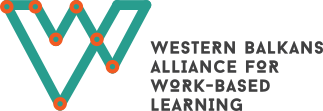Key features of WBL in Serbia
Dual education is a model of implementing school classes in the system of secondary VET, in which knowledge, skills, competences and attitudes (altogether known as “competences”) are acquired through theoretical classes and practical training at school, and through work-based learning at the employers’. Dual education is performed in accordance with the qualifications standards and plan and programme of classes and teaching.
Work-based learning process is an organized process that involves pupils, work-based learning instructors and coordinators, and happens in a real working environment where pupils acquire competences for working in a certain profession or group of professions.
Institutional partnership and cooperation between the ministry in charge of education, Chamber of Commerce of the Republic of Serbia and Institute for the Improvement of Education has been established with the purpose of implementing dual education at national level.
Dual education is based on the following principles:
- Partnership between a school and an employer – clear division of roles and responsibilities in ensuring a quality work-based learning process
- Establishing a social partnership at local level – involvement of all the interested parties in the process of planning, realization and monitoring of effects, through an agreed institutional framework
- Professionalism – establishing a legally binding relationship between pupils, employers and schools involved in the learning process
- Ethics – respect of personalities and dignity of pupils and realization of the education goals
- Quality assurance – coordination and establishing standards at all levels and monitoring the efficiency of dual education
- Career guidance and employability – development of career-management skills and ensuring better employment opportunities
- Availability – equal conditions for all for quality access to dual education
- Relevance – harmonization with the needs of employers and labour market
- Permeability – access to various areas of work within the same education level, and towards higher education levels
- Lifelong learning – enabling education and development throughout one’s life in all aspects of life and work
- Right to choose – freedom to choose occupation and education profile within the set criteria
- Equal opportunities – ensuring equal conditions for education, without discrimination based on the gender, race, nationality, culture, ethnicity or religion, language, sexual orientation, residence, material conditions, disabilities and other.

